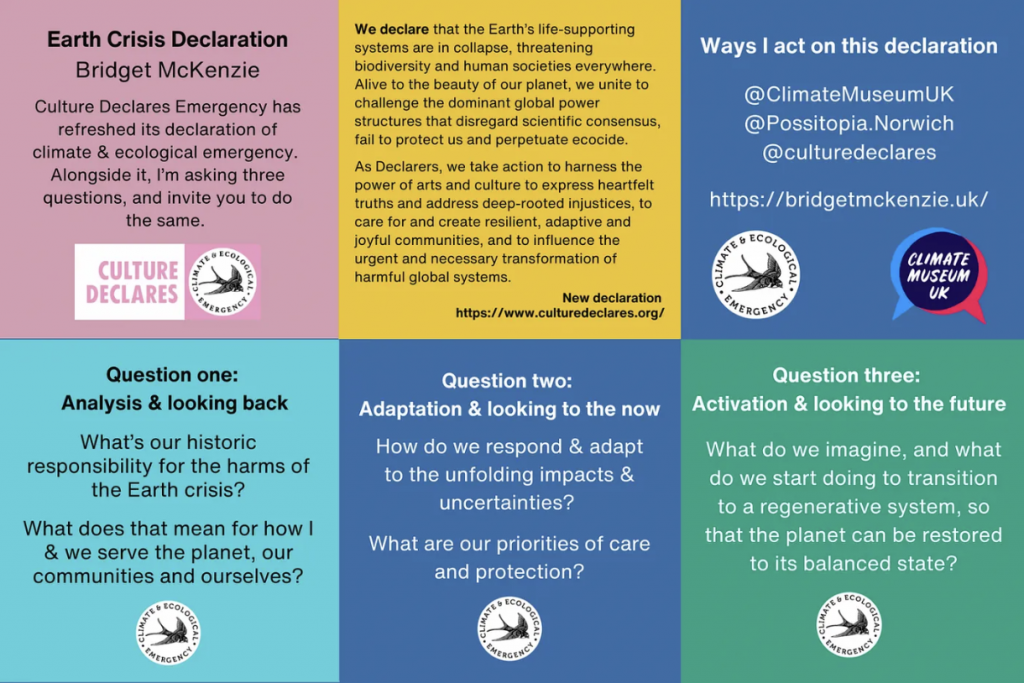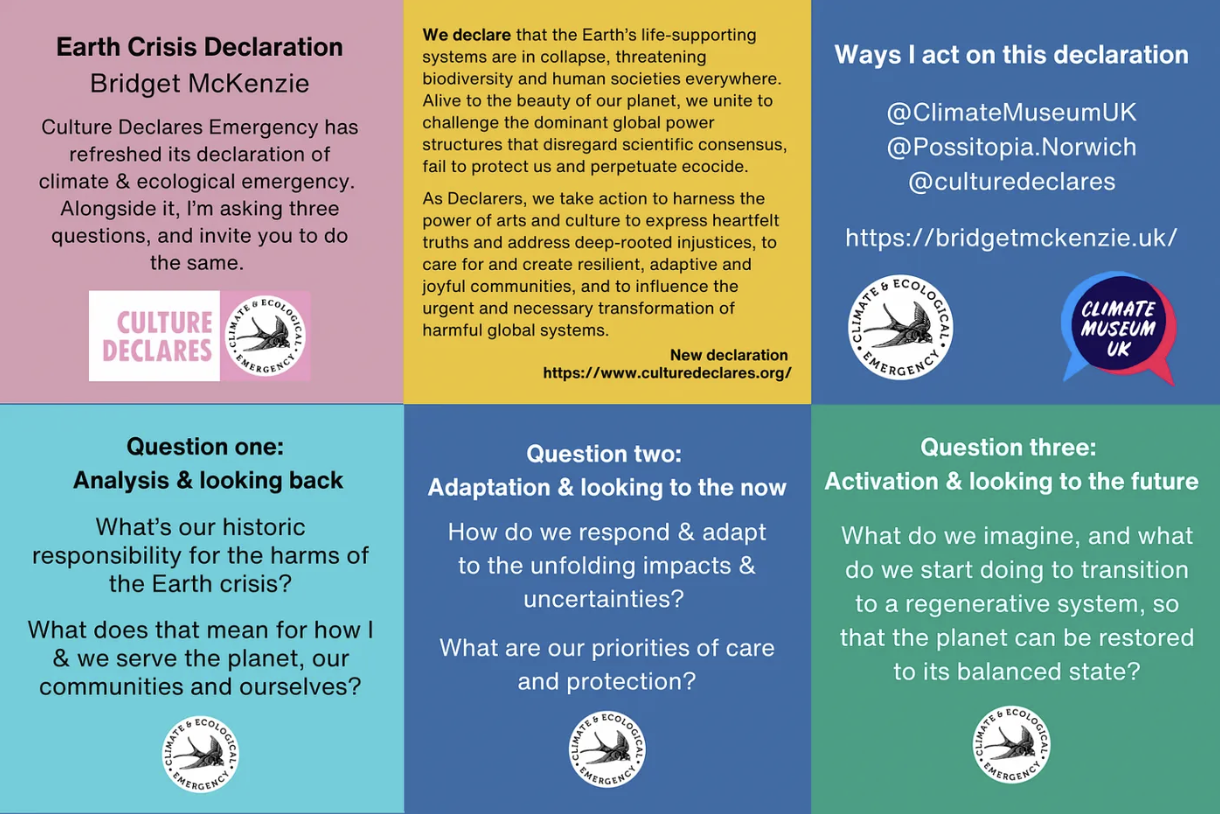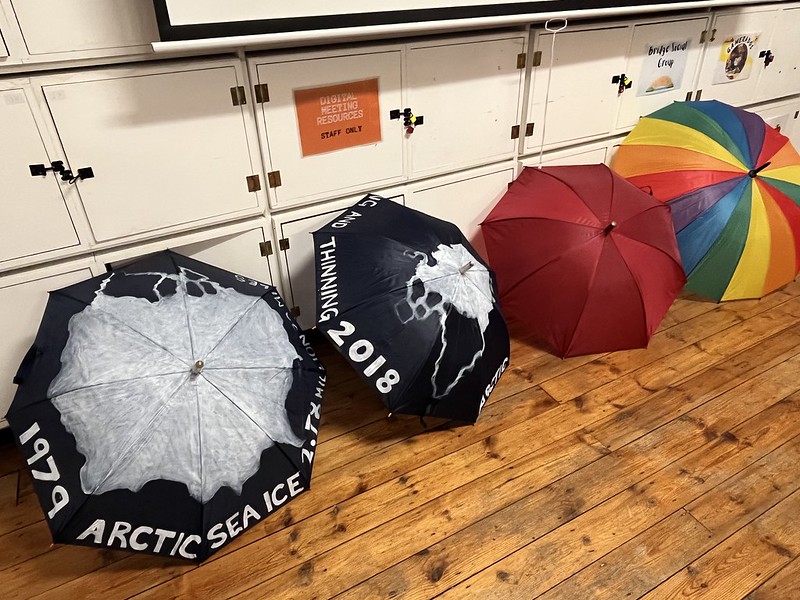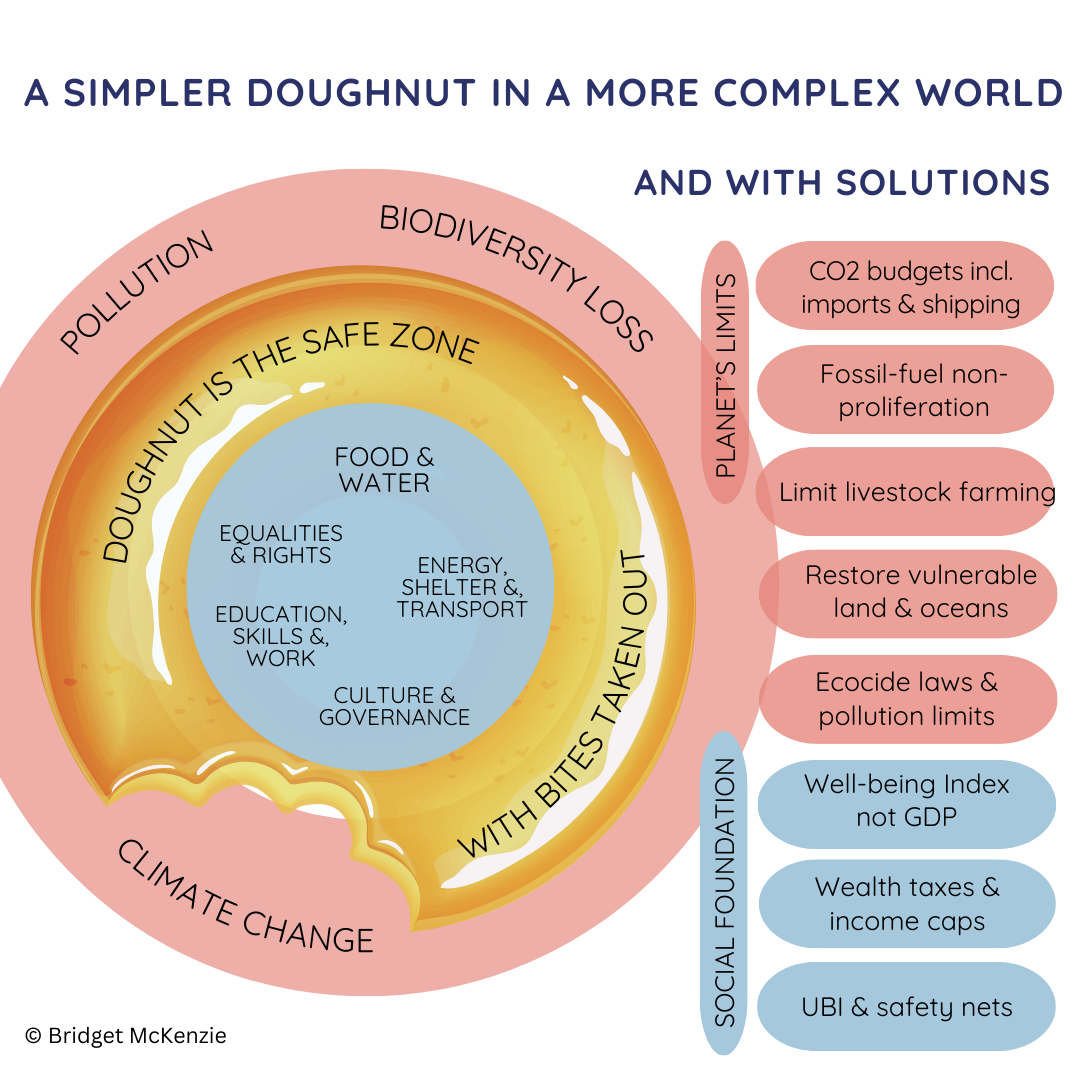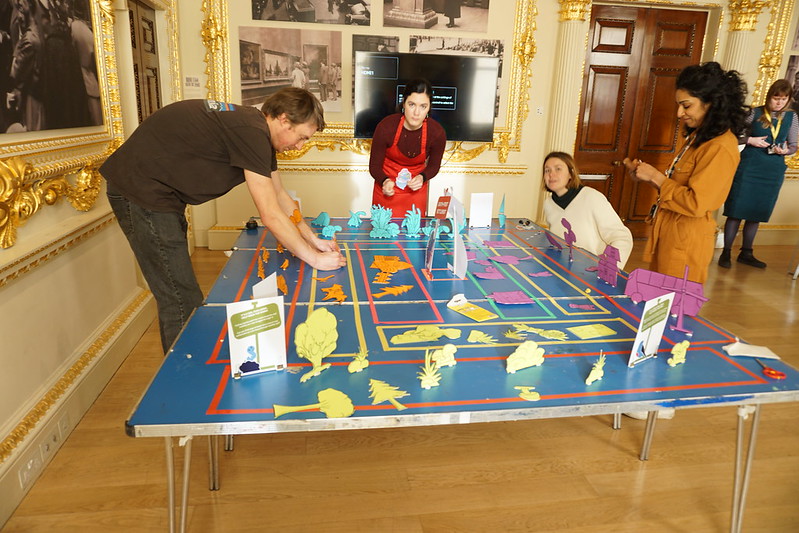To coincide with the 5th anniversary of Culture Declares Emergency, there is a call out for short film contributions to create a series of voices from the movement, and a collated powerful film ‘Holding Earth’ from some of these. Every contributor to the film is invited to hold or touch some earth.
I’ve been involved in an updating of the declaration and re-invigoration of the movement. I’ve written a series of evaluative reports including from the movement-wide online assembly and an in-person assembly in London. Anyway, one of the outcomes of this work is this plan for a film, and existing and new declarers are asked to follow some prompts and submit a piece by 13th December.

Here is my film, and below are the words in it:
I’m Bridget McKenzie, founder of Climate Museum UK. I’m based in Norwich, in Norfolk, the most vulnerable part of the UK to climate impacts.
I’m a member of the Culture Declares community, and this is our declaration. Together we declare that the Earth’s life-supporting systems are in collapse, threatening biodiversity and human societies everywhere.
Alive to the beauty of our planet, we unite to challenge the dominant global power structures that disregard scientific consensus, fail to protect us and perpetuate ecocide.
As Declarers, we take action to harness the power of arts and culture to express heartfelt truths and address deep-rooted injustices, to care for and create resilient, adaptive and joyful communities, and to influence the urgent and necessary transformation of harmful global systems.
I am holding some earth here — a fired pot, made from clay, finely pulverised soil. This represents the intersection of human culture with that of all other living organisms. We are human clay and depend on the soil for our lives.
I’ve been on the journey of declaration since childhood, slowly piecing together and talking about the causes of conflict, famine and habitat destruction. I’ve been involved in groups on these issues for over 30 years, including working to end oil sponsorship of culture. I wanted to declare a climate and ecological emergency, and to form the movement to enable Culture to Declare, because we’re at a crucial moment where our creativity and global human heritage have to be turned to a regenerative future, and not sink with the degenerative titanic of hyper-capitalism that has caused the Earth crisis.
Five years after co-founding Culture Declares, I’m focused on enabling Climate Museum UK as a collective, an experimental organisation to respond to the Earth crisis by collecting and doing participatory, place-based activations. My own place-based work is in Norwich, my home city that I returned to last summer. I’m working with many partners to imagine Norwich as a possitopia — a place impacted by the Earth crisis but also leading in regenerative change. It’s about opening imaginations to possible futures of the City, of its wider bioregion and the Earth systems we all depend upon. I’ve been running Possitopia Festival throughout November, bringing together many partners for 34 creative events — with photography walks, workshops making paper or exploring happiness, the launch of an alternative fashion school, or inviting public views on how to spend £274 million that Norfolk council wants to spend on the habitat-destroying Wensum Link Road. I’ve run a collage workshop exploring eight pathways people can take action in the crisis. With Nick Brooks I ran a workshop with many organisations working for climate resilience and adaptation in Norfolk. And there were Emergency Playdates, playing board games on climate and nature, and so much more.
I feel more connected and less lonely acting in this more locally-embedded way and I’m excited about the potential to create a visitable space for Climate Museum UK in my city — in a shared building offered on a meanwhile basis by the council.
But I’m also continuing to work on training and advocacy with the arts and culture sector nationally and internationally on the pathways of response to the Earth crisis. I’m aiming to help cultural organisations rethink their sustainability policies to be about an appropriate response to the risks of the crisis. We need to be asking these three questions:
- Looking back, what’s our historic responsibility for harm? What does that mean for how we serve the planet, our communities and ourselves?
- Looking now to the unfolding impacts and uncertainties, how do we respond and adapt? What are our priorities of care and protection?
- Looking to the future, what do we imagine and start doing to transition to a regenerative system, so that the planet can be restored to its balanced state?
I think these steps of Truth-telling, Care-taking and Change-making represent quite a profound change to the typical framing that is about incremental action to reduce your footprint. We can’t just rest with the notion of ‘doing our little bit’ while hoping to remain comfortable. Arts, design and heritage practitioners have a role to play in helping individuals, and civic and commercial organisations think in an expanded way looking across expanses of time and systems, to start integrating emotion and morality into planning, and applying the imagination to possible futures.

This journey of declaration, and of Possitopian practice in response, has been a stretch. I’ve stretched myself to do too much. But I also recognise how privileged I am, and the enormity of the challenge that requires hard work in response. In future, I need to pay more attention to enabling others to develop their skills and have ownership of the organisations I’ve founded. So I’m writing a book and creating a training course We Need To Talk About the Planet, which I hope will share my approaches widely with anyone wanting to have creative & effective conversations with people about the Earth crisis.
I am extremely grateful to be part of a community of declarers, including a wider international alliance of sector groups and Hubs working for a regenerative culture, and more locally, collaborating with creative enterprises and groups to help imagine and create a resilient place.
[Read this piece for a longer exploration of culture for adaptation and resilience.]

